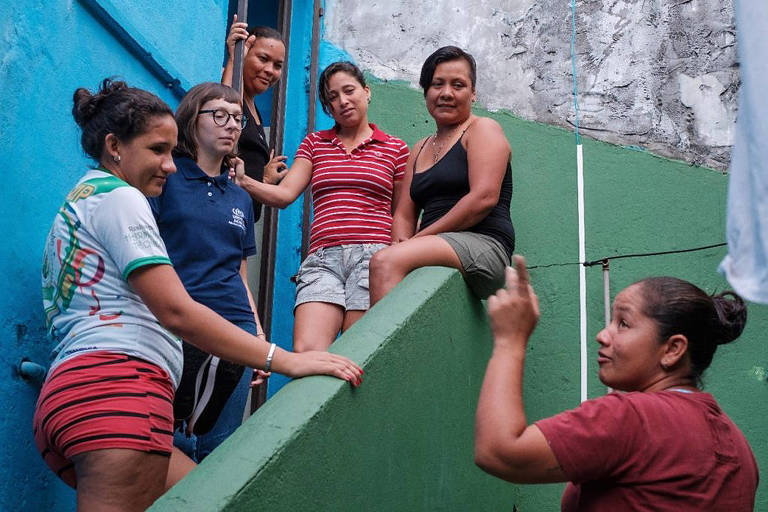Manaus is a stop in the route of part of the 80,000 Venezuelans looking for asylum or temporary residence in Brazil. And now, it is the first Brazilian city to have an exclusive shelter to the LGBTI+ refugee population.
The goal is to help them overcome a double challenge: in other housing situations, the LGBTI+ refugees suffer not only with xenophobia but also with prejudice against their sexual orientation.
"Here, we have more freedom to be who we are. In Venezuela, we couldn't display affection publicly. And we suffered from prejudice from other Venezuelans in other shelters here in Manaus, too," said barber Yelitza Ricardo, 34.
Founded by the nonprofit Manifesta LGBTI+ with support from the United Nations Refugee Agency and other partners, Casa Miga houses other six lesbians and a travesti from Venezuela and a Brazilian national. They all share household chores and pitch in with the house expenses. Other individual donations support the initiative.
The house received the first three lesbian couples in September. Jasmira Estaba, 36, and Gabriela Méndez, 29, have been together for four years, and say that their journey between Venezuela and the shelter was not an easy one.
They took months planning, a long time before leaving their country. "We sold everything: motorcycle, TV, air conditioner. We saved months of our combined salaries. We also bought things that we could sell for more along the road, to make more money. Still, we only had enough to reach Boa Vista," said Jasmira.
Like the other refugees, they spent a few months camped at Simón Bolívar Square, in Boa Vista, before they went to a shelter kept by the Brazilian government.
But after suffering harassment in shelters at Boa Vista and Manaus, they were referred to Casa Miga. They should stay there for 45 days, and afterward, they will receive cash assistance to pay for rent and utilities for three months, and they will give up their spot to new refugees.
"We are optimistic that we will find work, and while it doesn't happen, we are selling water bottles in the street. We are also taking cooking classes to help make ends meet because we will soon leave, move to our place and begin anew," said Gabriela.
(Monica Prestes)
Translated by NATASHA MADOV
